College Closed Tuesday Because of Icy Conditions
All Wake Tech campuses will remain closed Tuesday, January 27, 2026. Students taking in-person classes should check with their instructors for more information. Online classes will continue as scheduled. Many Wake Tech services, including Admissions and Academic Advising, are available virtually at virtualsupport.waketech.edu. Wake Tech employees who can work remotely should do so.
Faculty Spotlight
Nursing
Calm Approach to Teaching Isn't Simulated
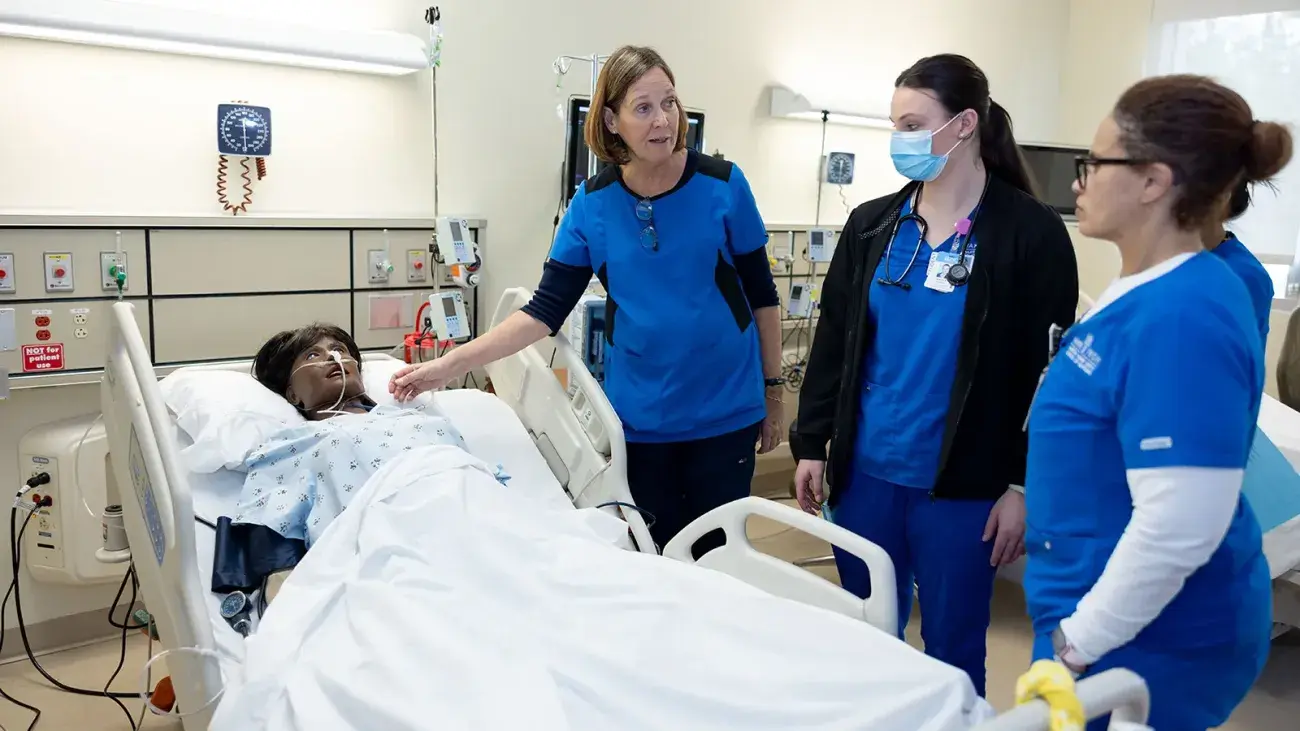
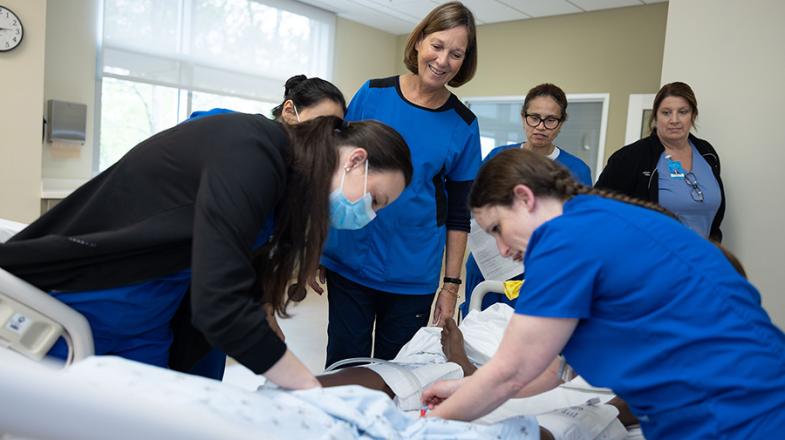
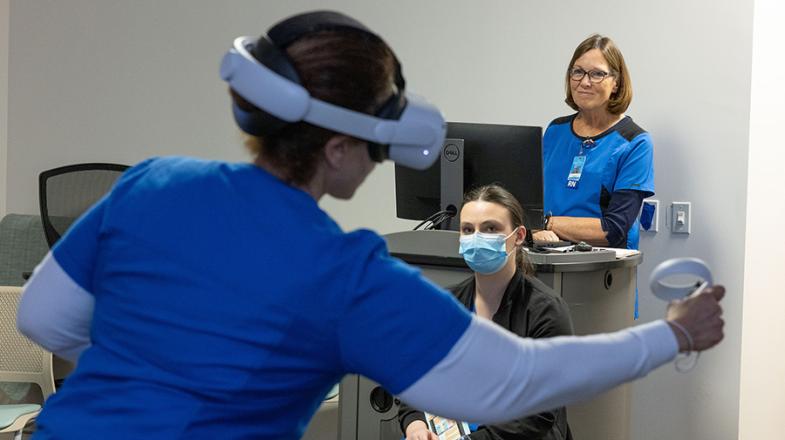
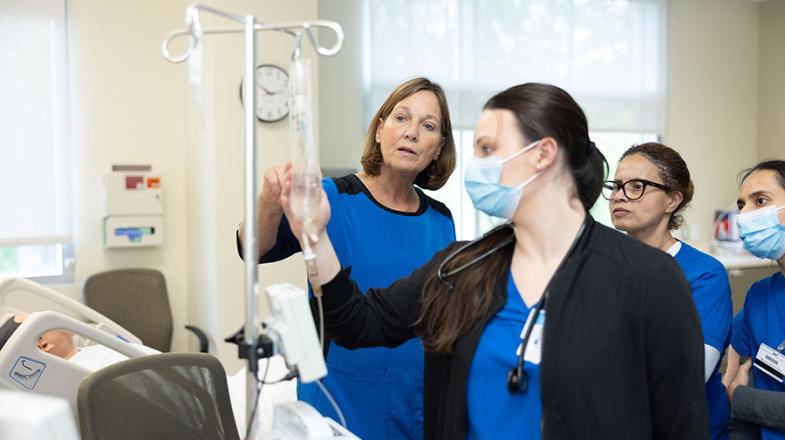
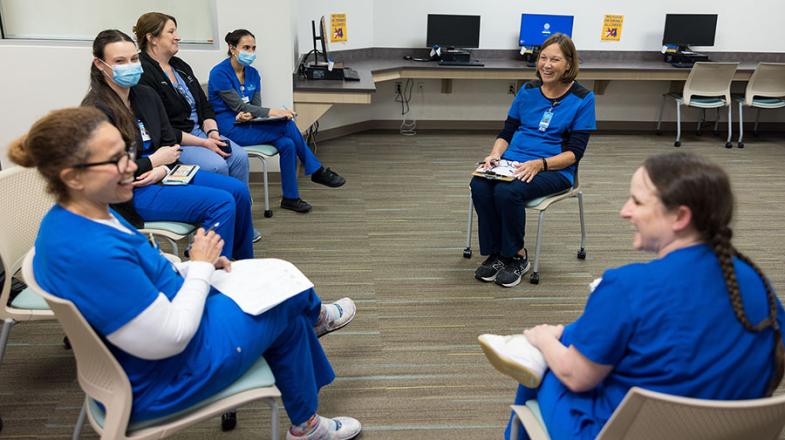
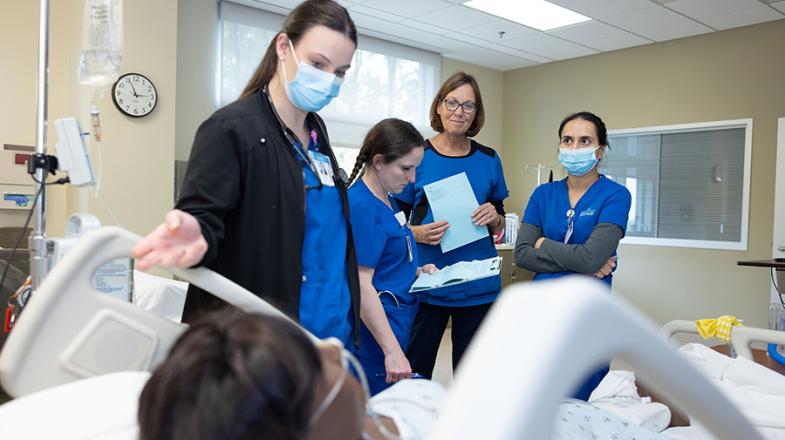
As several Nursing students watch a pair of high-tech manikins "breathing" slowly in their hospital beds, Kathy Spade explains the purpose of the simulation suite at Perry Health Sciences Campus.
"This is a great place to learn because you're not going to hurt anyone," Spade said.
The students excitedly examine one manikin, listening for computer-generated heart and lung sounds and checking its blood pressure and pulse. "Aren't these wounds kind of cool?" one asks.
Spade, a senior professor in Wake Tech's Martha Mann School of Nursing, then gives the students their assignments for their first two simulation scenarios. She also leaves them with a warning that applies both to simulations and what they will later encounter on the job as nurses: "Once you walk into that room, things change."
Things have certainly changed for Spade in her decades as a nurse and a teacher. The daughter of a radiologist and a nurse, she was almost destined for a career in health care. "I've always had the personality of wanting to help people," she said.
Between earning her nursing degree at Emory University and a master's degree at the University of Virginia, she worked at UNC Hospitals in Chapel Hill for a while. But it was at a community hospital in Iowa, where she planned and led childhood safety and healthy lifestyle courses, that she discovered her love of teaching.
Spade returned to the Triangle area in 2000 to teach a pediatric nursing course at Wake Tech. A decade later, she became coordinator of the college's nursing simulation lab and has focused on scenario-based education ever since, although she still teaches a classroom course or two every year.
"I have always learned best by application," she says, "and enjoy teaching this way also."
Simulation now includes sessions with virtual reality headsets, giving students a different opportunity to practice clinical skills and communicating with patients, family members and the health care team.
During manikin simulations, Spade sits alone in an observation room with a headset on. With a manikin playing the role of an elderly woman who has fallen, Spade watches students on a monitor as they check the woman's medications and tend to her needs. She also serves as the voice of the patient, telling the students how the woman is feeling to prompt responses.
All of her instructions, both before and during the simulations, are in even, measured tones. Spade says she wants to instill confidence in her students so they remain calm during what can easily escalate into a chaotic situation. She recalls how, when she was a student, one of her instructors questioned whether she would ever make a good nurse because she hadn't responded as the instructor wanted.
"I would never discourage anyone," she said. "If you respect students, they're going to respect you back."
Students respect Spade for both her clinical expertise and her "stoic demeanor."
"Sim can get kind of stressful – things can be taken to the extreme," student Grace Newton said. "But she's almost calming. She's in control and makes you feel very safe."
"I feel comfortable to make mistakes in front of her," student Carrie Manchin said. "She explains things methodically, so foreign concepts are easy to master."
Spade, who won an Excellence in Teaching Award in 2020, says the diversity and commitment of Wake Tech students makes teaching fun.
"I love our first-generation students, our second-career students," she said. "Our students are very motivated to do well, which makes my job easy."












